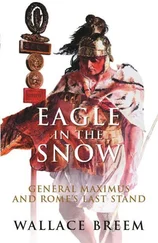“I am taking over the city,” I said. No-one moved but I heard Artorius say, “Ah,” very softly, and his eyes never left my face the whole time I was speaking. “I have informed the Praefectus Praetorio. The Magister Equitum per Gallias can spare me no troops; because he has none. The Dux Belgicae cannot help either. The Saxons are raiding his coast and he needs all the few men he possesses. The tribune, Flavius, as garrison commander, will be my deputy, with full powers. I am issuing an edict to conscript all men of military age, regardless of whether they are exempt by normal laws or not. I would not do this if the situation was not so grave. But it is.”
To my relief they accepted this without protest. One or two had already visited Moguntiacum and had seen the camp across the river. But, though they accepted, they could not really grasp the problem.
The Curator said, “Do you wish me to resign?”
“No.”
“I am to take my orders from Flavius?”
“Only in so far as they affect the military situation. In all else things will remain the same. I hope that you will be able to work in amity.”
He said, coldly, “I shall do my best.”
“If they cross the river, can you beat them in battle?” asked the chief magistrate, as though he were questioning a witness in one of his courts.
“Yes,” I said. “I can. But I must warn you that to win a battle one needs luck as well as judgement.”
“Then we have nothing to fear.” He did not understand my caution. He was a lawyer: he understood everything about law; nothing about anything else.
“But if you have, then I will give you good warning,” I said. “And, thanks to your help over the past year,” I lied, “I pray that all will yet be well.”
They grunted their satisfaction, and I was reminded of the pigs I had seen in the forest on my journey there; rooting among the trees for acorns.
Quintus and I went to the baths and listened sleepily to the gossip, while the attendants rubbed us with oil. The price of wine had gone up, the promised corn from Britannia had not arrived, and the merchants who owned the granaries and the senators who owned land were charging high prices for their poor crops. Honorius was blamed bitterly for his edict permitting slaves to join the army; the Praefectus Praetorio had issued an order forbidding citizens without passes from entering Gaul; and a certain actress had scandalised the respectable in the city by the number and rapidity of her lovers, and the priests had been joyously denouncing her from the steps of their churches for the past month. The Bishop, too, was in the news. He had made himself unpopular by granting sanctuary to an escaped slave who had killed his master; and he refused to give him up, despite the pressure of those civil authorities responsible for maintaining order. Conversation everywhere, however, always turned to one topic in the end: the games that Julianus Septimus was providing in the amphitheatre and the arena in ten days time, to celebrate the coming marriage of his eldest son’s daughter to a young man from a wealthy family in Remi. The Bishop might not approve (of what did he approve?) but his influence was not strong enough to halt the wishes of the man who had recently, and tactfully, contributed so much to his great cathedral. There would be fights between gladiators brought from Arelate, wild animals from Mauretania, and chariot races between drivers who had competed at Rome. The games were to last five days, and I received an invitation from the Curator to preside over them, much to my surprise. I thanked him and—a happy thought this—told him there would be a tax on all tickets sold, the proceeds to go towards the legion’s war-chest. If Septimus was prepared to spend so much money—the lions alone were costing one hundred and fifty thousand denarii each—then we were certainly entitled to our share of the profits.
Quintus spent a lot of time down by the docks with Gallus and Flavius. I thought at first it was a new ship they were interested in, but I went down there myself one morning and found them busy with the blacksmith and a model oar, the blade of which was tipped with iron along its edges.
Quintus said, “If the water begins to freeze it might be just possible to break the ice with oars; but they would need to be strengthened.”
“What about the boat? That would need protection also.”
“We have thought of that, too. What we need is a metal shield on the bow.” Flavius grinned. “The general and I have the ideas. Gallus sees if they can be put into practice.”
At a banquet one evening Quintus struck up a friendship over the wine with a fat man who bred horses, and whenever he disappeared after that I knew he was over at the fat man’s estates, giving them a hand in the breaking-in of the horses.
He was still urging me to make use of our bridge. “I can commandeer fifteen transports,” he said. “And we can get more from Confluentes and Borbetomagus.”
“You need sixty to carry a legion.”
“All right, sixty then. There will be no need to fear our being trapped on the wrong bank if there are boats to take us off, and the bridge is burned.” He knew my obsessive fear at having no secure line of retreat.
I said again, “They know just how weak we are.”
“They only guess, and you only guess that they guess. You cannot be sure.”
“Do you want me to lose Gaul in an afternoon?”
He took my arm. “Upon the Wall you used to spend your evenings studying the campaigns of great soldiers.”
“Yes,” I said. “Sertorius, Lucullus and Pompey, though he came to a harsh end.”
“Caesar too.” He smiled. “You used to tell me that his successes were due to speed and surprise. He exploited the weaknesses of his enemies.”
I said, wearily, “I am not Caesar.”
“He fought against odds as great.”
“The people he fought were not as well armed, nor as well equipped, nor as well led as these. And he was never reduced to only one legion.”
“We have my cavalry which makes us two, if I am any judge of soldiers.”
I hesitated.
“If Marcomir had been supported by sufficient horse he could have destroyed Respendial that day.” It was true.
“Very well,” I said. “I will try it if you wish. But we will do it my way and not yours. I need more cavalry. Get me another thousand and I will fight.”
“I shall have to call upon the auxiliary alae then,” he said cautiously. “They are not as well trained as I would like.”
I laughed. “When they are ready, Quintus, then let me know.”
He raised an eyebrow. “I will hold you to that.”
We attended the games and I shared the seats of honour with Septimus and his family. Of our previous meeting we did not speak; politeness alone made the occasion endurable. He behaved towards me, throughout, with all the dignity and good manners of a senator who has been advised by his emperor to open his veins in hot water. And yet, curious as it seemed afterwards, once, during the chariot races between the Reds and the Whites, our common enthusiasm for the sport made a bridge between us, and, for a short while, we were almost friends. This, in its way, was remarkable, for friends and families were split in their allegiance to the teams, quite as fiercely as over the Blues and Greens of Constantinopolis. The games were a great success and put the populace in a high good humour. All the seats were sold out; Artorius made a series of lucky bets and won much money; Quintus enjoyed the animal fights and thought them superior to the ones he had seen in Hispania; while the gladiatorial fights were, very properly, fought to the death. I had the rare experience, however, of giving the wooden foil to a gladiator who had gained the crowd’s approval; and his face, when I handed it to him, haunted me for days afterwards.
Читать дальше












